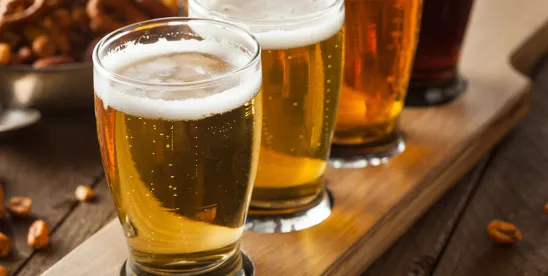With Florida’s legislative session having come to an end, now is the time of year when bills that made it through the process make their final stop at the Governor’s desk. While several bills related to alcoholic beverages failed to make it across the finish line, below is a summary of those that were signed into law this year:
CS/HB 709, chapter 2024-81, Laws of Florida – In-Store Servicing of Alcoholic Beverages:
This bill was amended during the legislative process to permit the in-store servicing (stocking, displaying, etc.) of all products that meet the Beverage Law’s definition of liquor by distributors. The initial bill only dealt with RTD cocktails that met the definition of liquor, but the enrolled legislation captures all liquor products. The language now allows retailers to obtain in-store servicing on all alcoholic beverage products (in-store servicing of beer and wine was already permitted), thereby forcing distributors to expand their services in order to stay competitive.
HB 583 / SB 1134, chapter 2024-45, Laws of Florida – Individual Wine Containers:
These bills continued the annual tradition of trying to permit the sale of extraordinarily large containers of wine in Florida, presumably for the benefit of wine club members and champagne aficionados. After several years of failed attempts, this year the Legislature took up the bill and voted in favor of the proposed changes.
Current law limited the sale of wine to 1-gallon containers or less, unless such wine was being sold in reusable 5.16 gallon containers. The new statutory language will permit the retail sale of wine in glass containers of 4, 5, 6, 9, 12, or 15 liters.
Wine is the only type of alcoholic beverage that Florida officially recognizes as permitted to be shipped directly from the manufacturer to the retail consumer, so it will be interesting to see whether there is an uptick in tax reporting or enforcement actions now that larger quantities of wine can make it into the state without going through the three-tier system.
SB 1090 / HB 1123, chapter 2024-77, Laws of Florida – Unlawful/Unauthorized Sale of Alcoholic Beverages:
The finalized language splits the “keeping or maintaining language regarding locations where alcoholic beverages are sold unlawfully” piece from the original statutory language and creates a new third-degree felony violation for “unlawfully selling alcoholic at a commercial establishment or keeps and maintains a place where alcoholic beverages are sold or intended to be sold unlawfully.” This violation escalates to a second-degree felony for subsequent offense. In addition to being felony offenses, these violations also carry fines between $5k-$10k, and $15k-$20k, respectively.
It's unclear how these new statutes will interact with the remaining original language. The intent of the changes is also unclear, aside from adding an escalated penalty. Given that selling without a license, and storing alcoholic beverages not permitted to be sold under a license with the intent to sell or unlawfully dispose of such beverages, remain misdemeanors under section 562.12(1)(a), Florida Statutes, but those violations could presumably be subsumed in “unlawfully selling alcoholic beverages at a commercial establishment,” a felony under section 562.12(1)(b), the new language appears to set forth two different penalties for the same conduct occurring at commercial locations.
CS/CS/HB 1335 – Department of Business and Professional Regulation (signed by Governor 4/25):
As the agency bill for the greater agency that houses the Division of Alcoholic Beverages and Tobacco, touch on some alcoholic beverage license issues.
The bill’s language requires all licensees to create and maintain online accounts with accurate email addresses to serve as the primary form of communication from DABT. The bill also mandates that the Division can only process alcoholic beverage license applications through submitted through the online system, which doesn’t work. Similar requirements are placed on cigarette, nicotine, and tobacco product licensees and applicants for those types of permits with regards to the online procedure.
DBPR’s online system has proven to be difficult to work with for ABT applicants, as the agency’s one-size-fits-all approach to the online portal fails to accommodate the intricacies of complicated applications such as those promulgated by ABT or the Division of Hotels and Restaurants. Thus, a majority of applications submitted through the online queue are deemed to be deficient by the agency, sometimes through no fault of the applicant. As such, sophisticated applicants, law firms, and businesses have eschewed adoption of the application portion of the online portal and instead submitted paper applications in person or through email. By forcing all applicants to use the online system and prohibiting ABT from processing paper applications, the result will likely be greater application processing times for all users.
Aside from creating a logjam in the application process, the other important feature of the bill for DABT is the adjustment to the tobacco surety bond language. The language raises the initial bond from $1,000 to $25,000, and allows the Division, through properly promulgated procedure, to match the bond level up to the licensee’s highest monthly tax liability.




 />i
/>i

